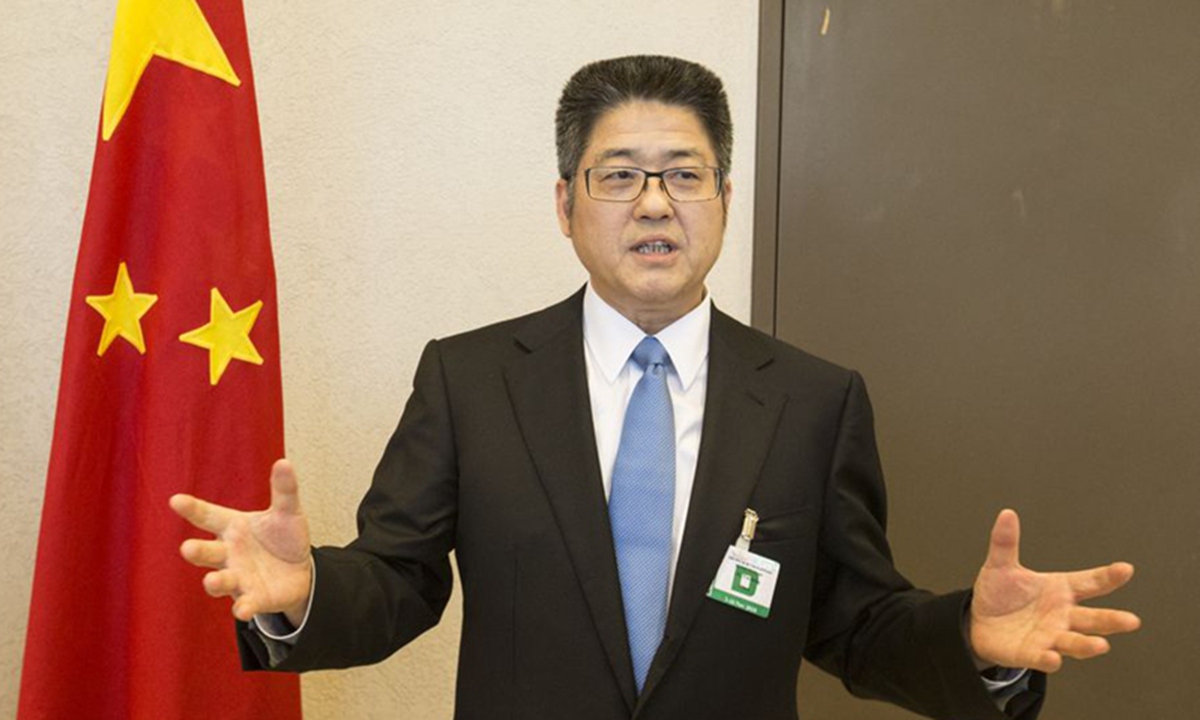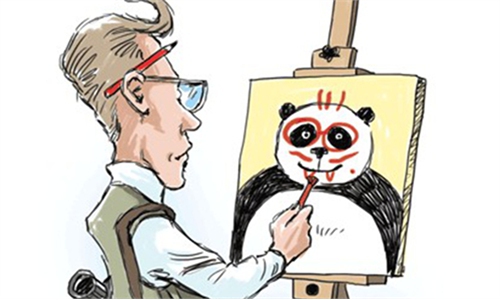
China's Vice Foreign Minister Le Yucheng speaks to reporters during an interview in Geneva, Switzerland on November 6, 2018. Photo:Xinhua
A Twitter post by Chinese foreign ministry spokesperson Zhao Lijian which showed a cartoon that condemns Australian troops' brutality against Afghan civilians has triggered another round of criticism of Western media and politicians over China's so-called "Wolf Warrior diplomacy." Chinese Vice Foreign Minister Le Yucheng at a forum in Beijing on Saturday dismissed the accusation as misunderstanding of China's diplomacy.There are a series of principles in terms of diplomacy, and the principle of reciprocity is one of them. Once a country's national interests and sovereignty have been undermined by other countries, it is legitimate for the country to resort to diplomatic approaches to criticize, condemn and attack in a reciprocal way. China observes this principle. For example, in the face of US Secretary of State Mike Pompeo's groundless accusations, it is rational for China to respond with strong criticism. This is not the so-called Wolf Warrior diplomacy. It is vital for a senior diplomat to publicly show China's official stance over the issue.
Le also said "Wolf Warrior diplomacy" label is actually another version of the "China threat" theory and another "discourse trap," whose purpose is to prevent China from fighting back and push China to give up fighting. Indeed, for containing and suppressing China, the West has created a bunch of excuses to attack China.
Su Hao, founding director of the Center for Strategic and Peace Studies at the China Foreign Affairs University, told the Global Times on Sunday that the "discourse trap" of the West aims to restrain the development of China's diplomacy and force China to sacrifice its national interests. China's diplomacy style has become another excuse for the West to slash China. China should continue to carry out diplomatic actions in legitimate and rational ways, lashing out against any country that harms China's national interests.
Since the term "Wolf Warrior diplomacy" became hot, many Western media outlets have hyped that China's diplomatic philosophy has shifted from being low-profile to an aggressive style. In comparison to the past, China's recent diplomatic moves seem to have become stronger, but it does not signal that China has changed its diplomatic ethos.
With China's rapid rise, Western countries led by the US have ramped up their crackdowns on China. In particular, some of the diplomatic rhetoric and practices of the US and its allies have gravely jeopardized China's core national interests. China's hardline response was merely out of the principle of reciprocity. It does not indicate that China has toughened its diplomatic stance.
China does not have to tolerate smears leveled by other countries. It is crucial to make the necessary explanations and then fight back. This is also a manifestation of safeguarding China's national interests, which is beyond reproach.
However, China underlines etiquette and good manners, loves peace and advocates harmony. Beijing has never taken the initiative to provoke other countries, nor is it interested in meddling in others' internal affairs. China will continue to stand for a peaceful settlement of disputes and divergences, rather than resort to tit-for-tat means.

